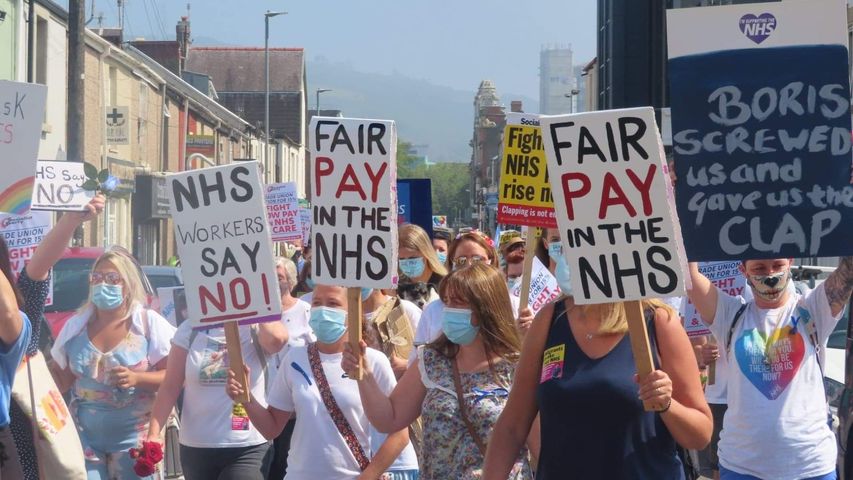

The Royal College of Nursing, representing 450,000 nurses, has launched an organising drive amid its campaign for a 12.5% pay rise. Any member of the RCN can sign up for the six-week course, which will teach them to organise their workmates and strengthen the union’s grassroots.
The RCN, along with unions Unite and GMB, responded to the government’s recommendation of a 1% pay rise for NHS workers with a threat of industrial action. The RCN, a union not known for its willingness to strike, went so far as to announce a £35m strike fund.
NHS workers and their unions await the recommendation from the “independent” pay board, which is widely expected to be in line with the government recommendation of 1%. This latest announcement from the RCN suggests they are gearing up to reject the offer and campaign for 12.5%.
The pay campaign, and certainly any ballot for industrial action, will require organised trade union branches and campaign hubs in every hospital across the country, coordinated between unions and professions. The UK’s anti-union laws demand a 50% turnout in a strike ballot and only allow members to vote by post. This threshold was intended to be difficult to achieve, especially in national strikes, and has proven so in recent years. More active trade unionists will result in the recruitment of new members and further engagement with existing members, essential to both the campaign and a ballot.
An organised membership also has other benefits. To ensure the RCN and other NHS unions follow through on their threat to ballot, trade union activists will need to organise pressure from below and prepare to fight for control of the campaign. The RCN is the largest NHS union and does not have a history of organising industrial action. A 2019 strike by nurses in Northern Ireland was the first time in the RCN’s 103-year history that its members had taken industrial action, a testament to the current treatment of nurses and the threats that the NHS faces.
Though the other NHS unions – Unison, Unite and the GMB – have a more extensive industrial history, their record also shows a tendency to cut bad deals and call off strikes before they’ve had a chance to win. In 2011, Unison and GMB both called off a national public sector strike over pensions after just a single day of action, cutting a terrible deal with the government.
In 2018, NHS unions agreed a pay deal that left some workers worse off, and many others received a far smaller increase than they were led to believe. The RCN was forced to admit it had misled members by claiming they would all receive an immediate 3% rise. In the midst of a backlash from underpaid, overworked members, the GMB called for pay negotiations to reopen, but the other unions declined.
When the 2018 pay deal neared its end and NHS workers found themselves on the frontline of a pandemic, activist organisations like Nurses United and NHS Workers Say No, took to the streets to demand a pay rise. With justified anger amongst NHS workers, backed by popular opinion, these networks are spreading across the NHS. They have the potential to become the rank and file organisation NHS workers so desperately need. If activists were organised nationally, across hospitals, professions and unions, that network could organise to insist on a joint pay campaign to ballot for industrial action, guard against another bad deal and fight for the pay rise that NHS workers deserve.